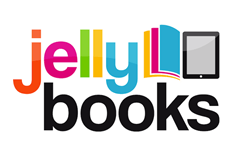 How well do readers engage with books? That kind of information can be useful for publishers to know in advance, especially if they might be planning to craft a marketing campaign around that book. At Publishing Perspectives, guest contributor Andrew Rhomberg discusses technology that his company, Jellybooks, uses to help gather that information from e-book Advanced Reader Copies they send to readers as part of an engagement survey.
How well do readers engage with books? That kind of information can be useful for publishers to know in advance, especially if they might be planning to craft a marketing campaign around that book. At Publishing Perspectives, guest contributor Andrew Rhomberg discusses technology that his company, Jellybooks, uses to help gather that information from e-book Advanced Reader Copies they send to readers as part of an engagement survey.
How are reader interactions with books captured? The answer to this question is that Jellybooks developed a smart piece of software called candy.js that is embedded inside ebooks – specifically those in ePub 3 format – and records the reader interactions across a range of 3rd party apps such as iBooks and Adobe Digital Editions (ADE). The data is captured and stored locally, no internet connection is required. This is how the tool differs from Google Analytics: it works entirely offline until the moment when the user goes online and establishes a connection. Once the reader is online, the data is uploaded with a single click by the user.
This kind of information can be invaluable from a marketing standpoint—if advance readers just can’t get engaged with a particular book, it might not be a good idea to throw their money at it to market it. Perhaps the author might even need to make some changes.
It could seem a little disturbing just how much information they’re able to gather about how well readers engage with a given book. Rhomberg does make it clear that this information gathering is done with the advance consent of the people who receive the ARCs, instead of writing a review or report on the book, so it’s not the privacy issue it might be—at least, not in this case. It does raise the question of just how much information Amazon is getting out of their Kindle user tracking, and to what extent Kindle owners consent to that kind of information gathering.
Regardless, it’s an interesting reminder of things e-books can do that paper books simply can’t.
We previously mentioned Jellybooks in 2012, when it was focusing primarily on finding new methods of book discovery.
































